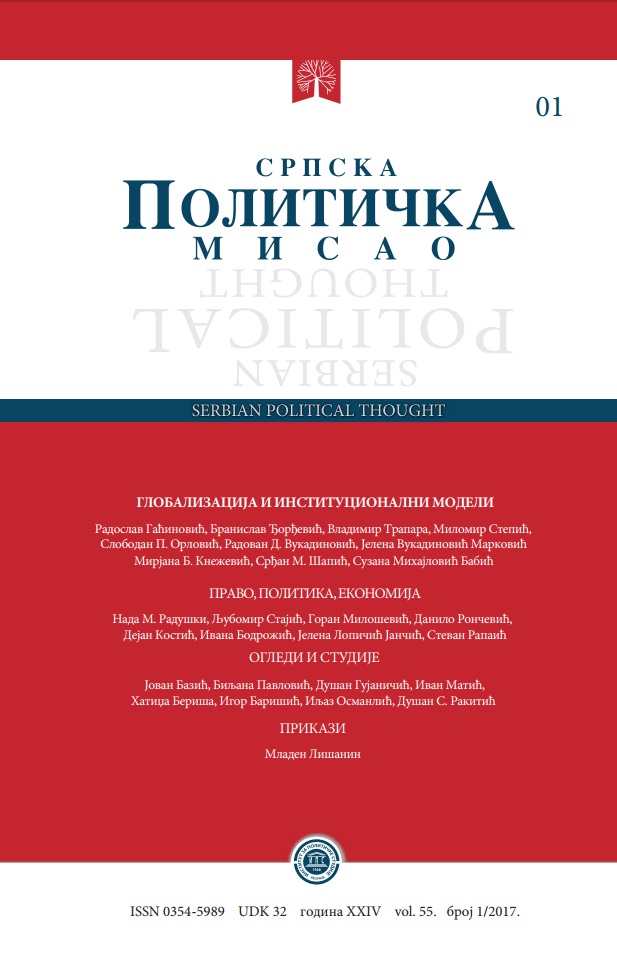Институционални оквири политичке доминације
Institutional Framework of Political Domination
Author(s): Radoslav GaćinovićSubject(s): Comparative politics, Studies in violence and power, Social Norms / Social Control
Published by: Институт за политичке студије
Keywords: institutions; politics; domination; indoctrination
Summary/Abstract: Society, especially the contemporary society, is characterized by an endless number of institutions. They are defined as relatively permanent and formal rules which regulate the relations among the people, established in certain relationships, activities, or organizations. Omnipresence and role of institutions has guided many authors to explain the character of phenomena such as state or economics as emanations of certain institutions. Unsurprisingly, theory of institutionalism does not define a state as an organism or organization of ruling classes, nor as a legal entity. It defines a state as an institution, which implies not just the idea of common functions, but also the organization and power which makes that functions possible. In that sense, goals of indoctrination can be conscious and unconscious. Its primary objective is establishment of experience of permanent rule of minority over majority. In its essence, the indoctrination is based on the creation of religious, obedient, and confused individual. In other words, it creates a believer, an opportunist, a partial being, a supporter of hierarchy and establishment, a venerator of authorities and expertise, a suggestible person who is always prone to be subjected to threats, taboos and prejudices. By large part, methods of indoctrination are contained in the generally accepted customs and formal rules transferring among civilizations and societies, thus creating something holy and untouchable. The other part of the process is imposed by the ruling minority in the form of convenient dogmas and positive legal regulations. When analyzing these phenomena, we must remember the class struggles and pervading totalitarian spirit. To be more exact, methods of this process are forever identical and are founded on authority, force, extortion, fraud and formal-logical means of thinking. Organized indoctrination conducted outside of an educational system has different forms. For simplicity, it can be divided into two categories: public and concealed indoctrination.
Journal: Српска политичка мисао
- Issue Year: 2017
- Issue No: 1
- Page Range: 13-28
- Page Count: 16
- Language: Serbian

